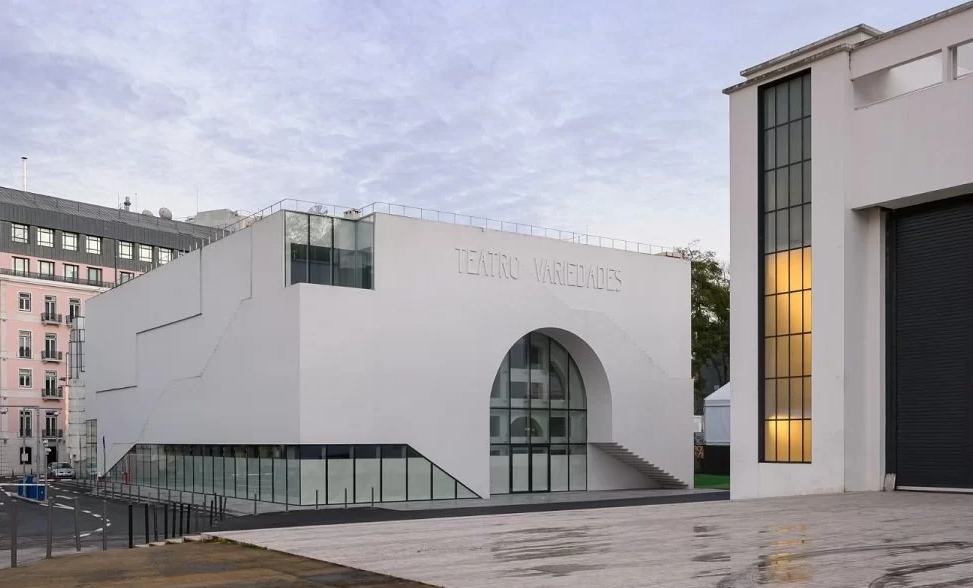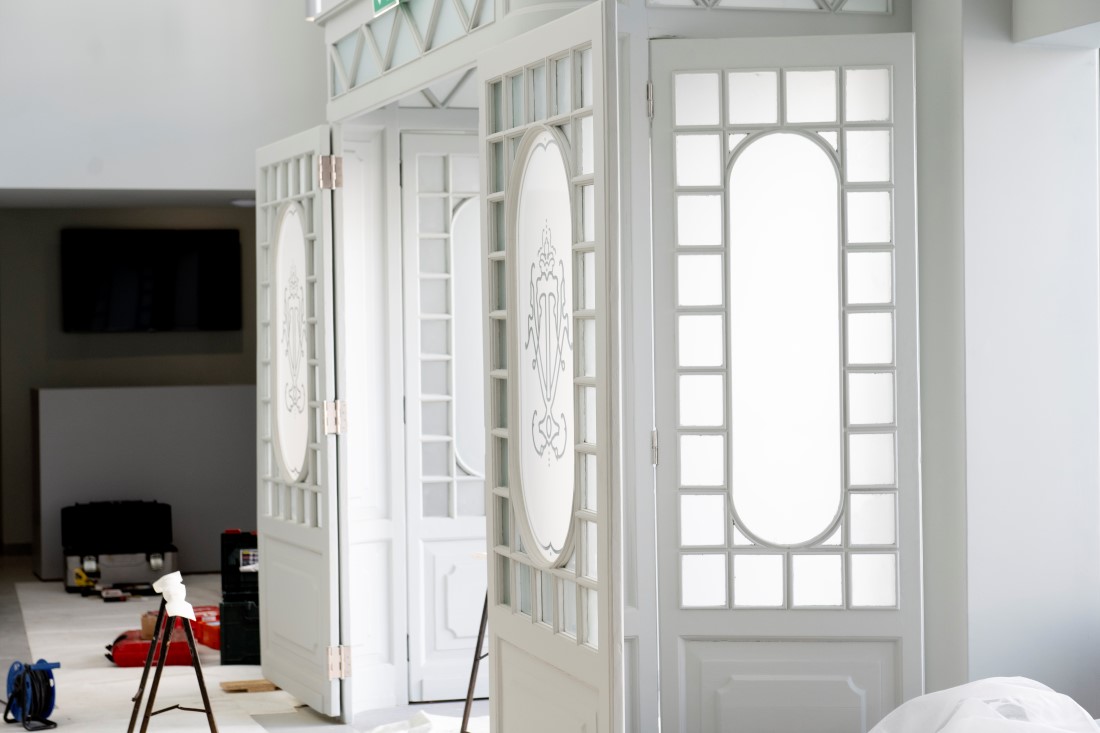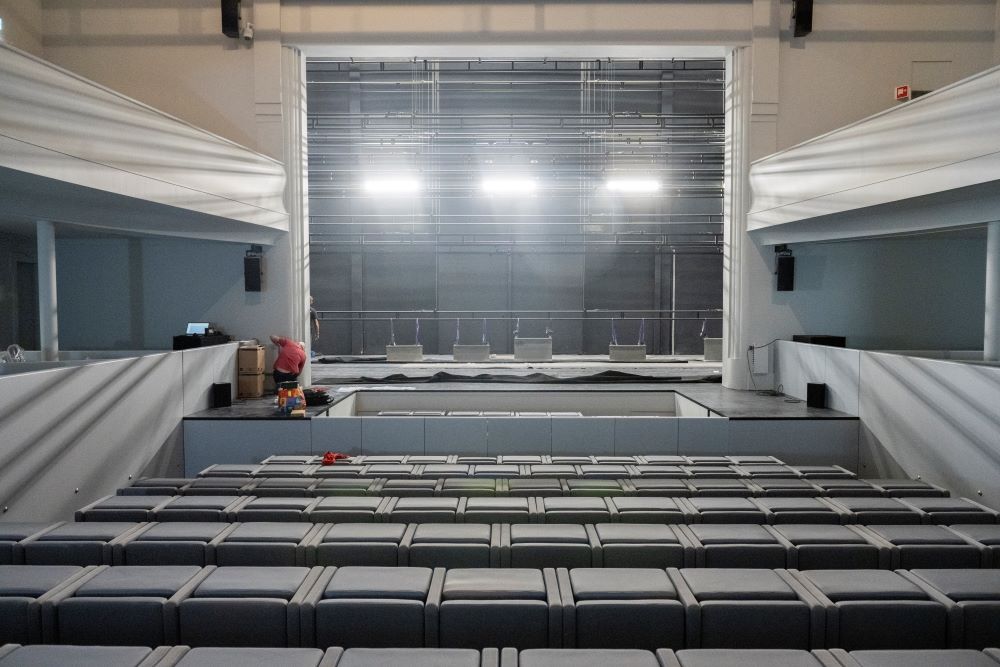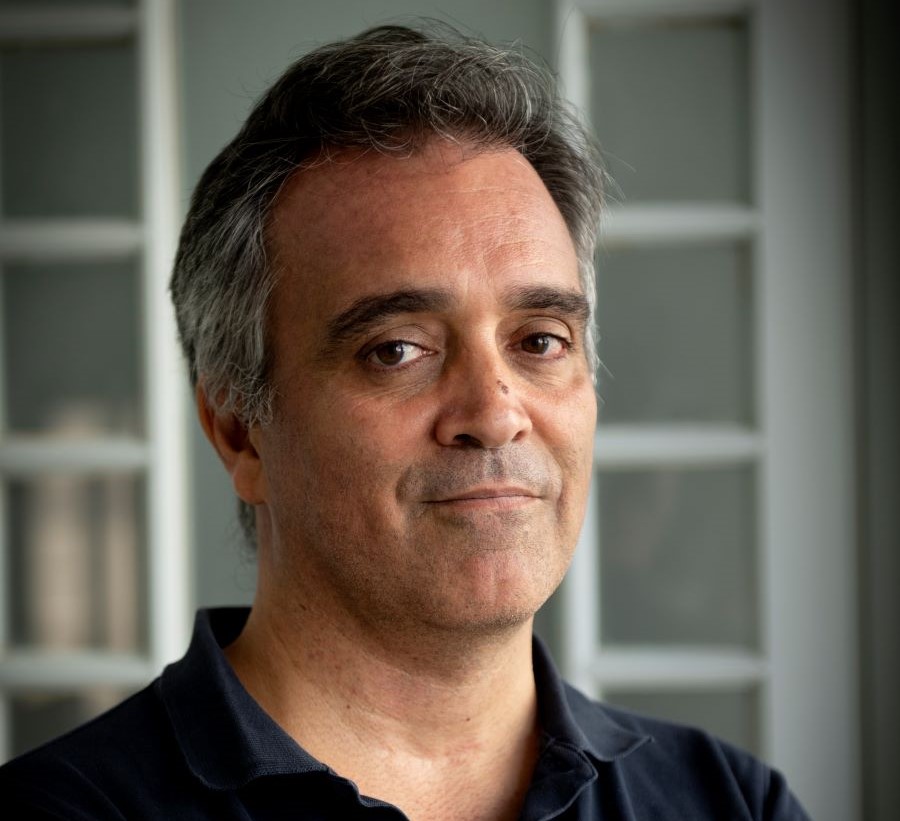Theater
The “new” Teatro Variedades
Parque Mayer's Theater opens its doors to the city again

Almost three decades later, Teatro Variedades, in Parque Mayer, opens its doors again. On October 5th, director and playwright Ricardo Neves-Neves premieres two new shows – the comedies Entraria nesta sala and The Swimming Pool Party –, anticipating a programme that seeks to privilege theater and to invest in longer seasons than those that have been usual in the city's main cultural institutions.
Almost a hundred years ago, on July 8, 1926, a new venue opened in Parque Mayer, becoming, with Teatro Maria Vitória, the second performance building in the venue located behind the Lima Mayer Palace (currently the Consulate of Spain in Lisbon). Variedades, designed by architect José Urbano de Castro, opened its doors with the revue Pó de Arroz, starring the very “popular” Carlos Leal, the “gentle divette” Annita Salambô and the then young actor and screenwriter Vasco Santana.
The current building is a far cry from what it would have been at the time, as between 1934 and 1940 it underwent a series of improvement and expansion works, the most decisive of which were the replacement of the wooden roof with a metal one and the creation of a large counter. Until 1966, when it suffered a fire that destroyed the stage box, Variedades was expanded and even modernized, asserting itself, together with the other theaters in Parque Mayer (Maria Matos, Capitólio and ABC), as one of the main comedy and revue stages.

Although in the early 1990s there was a new architectural intervention, especially at the stage level, in order to adapt it to the needs of television (Filipe La Féria recorded the Grande Noite there for RTP television), the decline of Parque Mayer and the loss of popularity of revue theater dictated the closure of Variedades and its deactivation.
Already in this century, the desire to return Parque Mayer to the city (where in an act of resistance only the Maria Vitória Theater remained in operation) became a goal of city councils and Lisbon residents. Despite so many turmoil, most of them worthy of inspiring very acidic revue theater scenes, the Lisbon City Council managed to recover Capitólio and, now, Variedades, putting once again the so-called “Lisbon Broadway” on the map of the city’s cultural offer.
A theater for all types of audiences
The rehabilitation of Teatro Variedades is designed by architect Manuel Aires Mateus and provides the space with “new functional structures suited to the needs of modern performance venues”, as can be seen on the official page of Lisboa Cultura, the municipal company that manages the “new” theater. Spaces such as the auditorium, stage and foyer were maintained, “cleaning the construction of all adjoining elements in an irrecoverable state of conservation.”

As a cultural facility, “Teatro Variedades will operate on a hosting basis, with the objective being, above all, to have shows running for up to six weeks, somewhat contradicting what has been happening in other institutions in the city”, announces Joaquim René, director of Variedades, and also the “neighbor” Capitólio. “We want companies that debuted their shows in a room, but only had a few days of performance, to be able to do a longer season here”, in a logic similar to that adopted, still under the direction of Tiago Rodrigues, by Teatro Nacional D. Maria II (TNDM II) with Teatro Maria Matos, currently managed by Força de Produção.
And, speaking of TNDM II, the year 2025 of Variedades will be marked by five productions from the theater currently directed by Pedro Penim. “Due to the delay in the works on the Rossio building, Nacional will be here, in February, with A Farsa de Inês Pereira. In the following months, Hamlet will be shown here, co-produced with Teatro São João do Porto; Marco Mendonça’s new project; and two other shows that we cannot announce yet.” As a curiosity, René remembers that the relationship between TNDM II and Variedades is not new: “when Nacional caught fire [1964], the Company [Rey Colaço-Robles Monteiro] was here.”

In addition to hosting, TNDM II will bring, next year, FIMFA festival and a production by Musical Theater Lisbon, the Lisbon Players and Companhia de Ópera do Castelo. In January, Três é a conta que Deus fez, a show that brings together three historical figures from Parque Mayer on stage: Florbela Queiroz, Natalina José and António Calvário. “It will be a very representative year of the heterogeneous programming that is intended for Variedades, in order to bring in diverse audiences, while at the same time seeking to honor the memory of Parque Mayer by simultaneously bringing it into contemporary times.”
Elétrico opening and Rita Ribeiro and Jon Fosse closing 2024
When on October 5, the renovated Variedades opens its doors again, Teatro do Elétrico and Ricardo Neves-Neves will have the honors of presenting the two inaugural shows, which will run simultaneously. “Opening a theater is a good feeling, but it’s also very scary. We are the ones who are going to test everything”, points out the playwright and director, just two weeks before the premiere of Entraria nesta sala and The Swimming Pool Party, two shows that are based on texts written a few years ago but never staged by Neves-Neves.

“
When [Lisbon Cultura] invited us, they had in mind a comedy or a musical. With the help of Sissi Martins and Ruben Madureira, I even looked for a musical piece that suited not only the size of the budget but also the size of the stage, but I couldn’t find it. That was when I remembered these two that I wrote a few years ago and never staged”, says Neves-Neves, highlighting the desire to present “two comedies with live music”, one of which, Entraria nesta sala, evokes the memory of Portuguese theater and four of its greatest personalities: António Silva, Beatriz Costa, Maria Matos and Vasco Santana.
After a month with Teatro do Elétrico – and, attention, with an exhibition in the theater’s foyer that brings together a collection of photographs of Parque Mayer by critic and filmmaker Lauro António –, in November there is the return of Rita Ribeiro to the stage and the Artistas Unidos in the city center, after the closure of Teatro da Politécnica.
On the 6th, premieres Rita, a show staged by João Ascenso, with text by Sandra José, where Rita Ribeiro, alone, revisits her life and five-decade career in theater and cinema. At the end of the month, Artistas Unidos returns to Jon Fosse, the Norwegian author awarded the Nobel Prize for Literature in 2023, with Vento Forte, a show that will begin in December and closes the first quarter of the new life of Teatro Variedades.